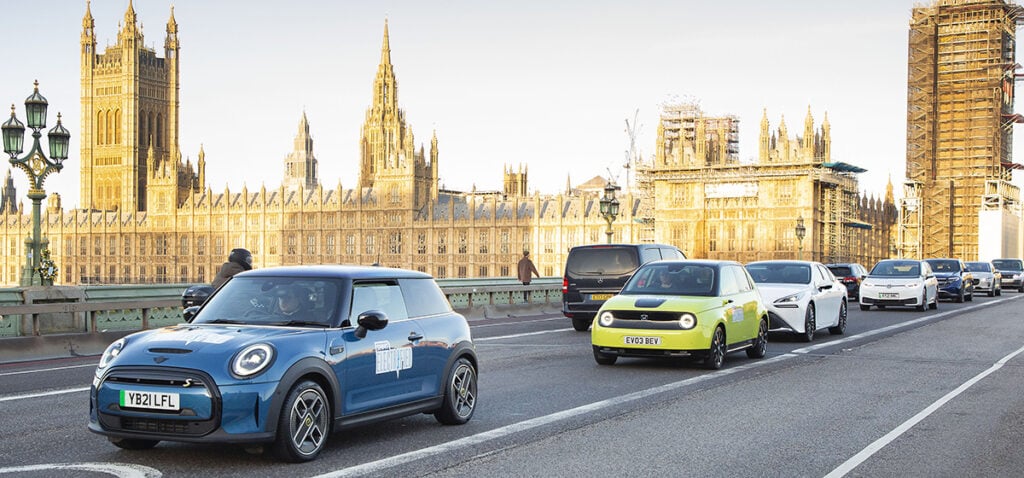The Society of Motor Manufacturers and Traders (SMMT) has published a blueprint for what it described as an “electric revolution” for private retail vehicles.
This blueprint is split into three sections focusing on charging, incentives and manufacturers, with the SMMT calling on the government and stakeholders to prioritise overcoming retail consumer concerns through a commitment to “dramatically” expanding public charging infrastructure and fairer incentives.
It is estimating that there will need to be around 2.3 million public chargepoints in service by 2030 to provide adequate coverage and tackle range anxiety, with this meaning more than 700 new chargepoints will need to be installed every day until the end of the decade. Currently, around 42 new chargepoints are installed a day.
The SMMT is therefore recommending that the government commits to creating a nationally co-ordinated infrastructure plan with binding targets for delivery. Alongside providing funding to local authorities or other organisations, the government should work with all stakeholders in the development of a strategic plan to ensure the network can support the expansion of electric vehicle uptake, putting the right chargers in the right place to suit consumers.
Secondly, the government should also commit to ensuring affordability of charging and regulating the charging market, creating a regulatory body that will enforce a minimum reliability standard, ease of payment, pricing transparency and real-time data sharing from public chargepoints.
When it comes to price incentives, the SMMT found that preserving the Plug-in Car Grant (PiCG) and providing consumer VAT exemption could increase uptake by almost two thirds by 2026 compared to current projections. The PiCG was cut last year, adding £500 to the cost of every battery electric vehicle (BEV) under £35,000, and £3,000 to those costing more than £35,000 due to the grant being removed from EVs over that price.
The SMMT also outlined how the automotive industry needs a co-ordinated and long-term strategy, with this including the development of a comprehensive and long-term automotive industry transformation plan, support and investment in the development of gigafactories for large-scale battery manufacturing and support for reskilling and upskilling of the workforce among other measures.
This blueprint comes as its latest analysis of new car registrations in 2020 shows just 4.6% of privately bought cars were BEVs. This is despite BEVs having a bumper year, with demand growing by 185.9% across the year.
Mike Hawes, SMMT chief executive, said that whilst this growth is to be welcomed, “it’s clear this has been an electric revolution primarily for fleets, not families”.
He added that in order to meet the ban on sales of new internal combustion vehicles by 2030, the government and other stakeholders “must put ordinary drivers at the heart of policy and planning” with incentives that “tempt consumers, infrastructure that is robust and charging points that provide reassurance”.





